Who are the Gazprom-RusVelo cycling team and how are they linked to the Russian government?
The Russian team are in the spotlight after the invasion of Ukraine
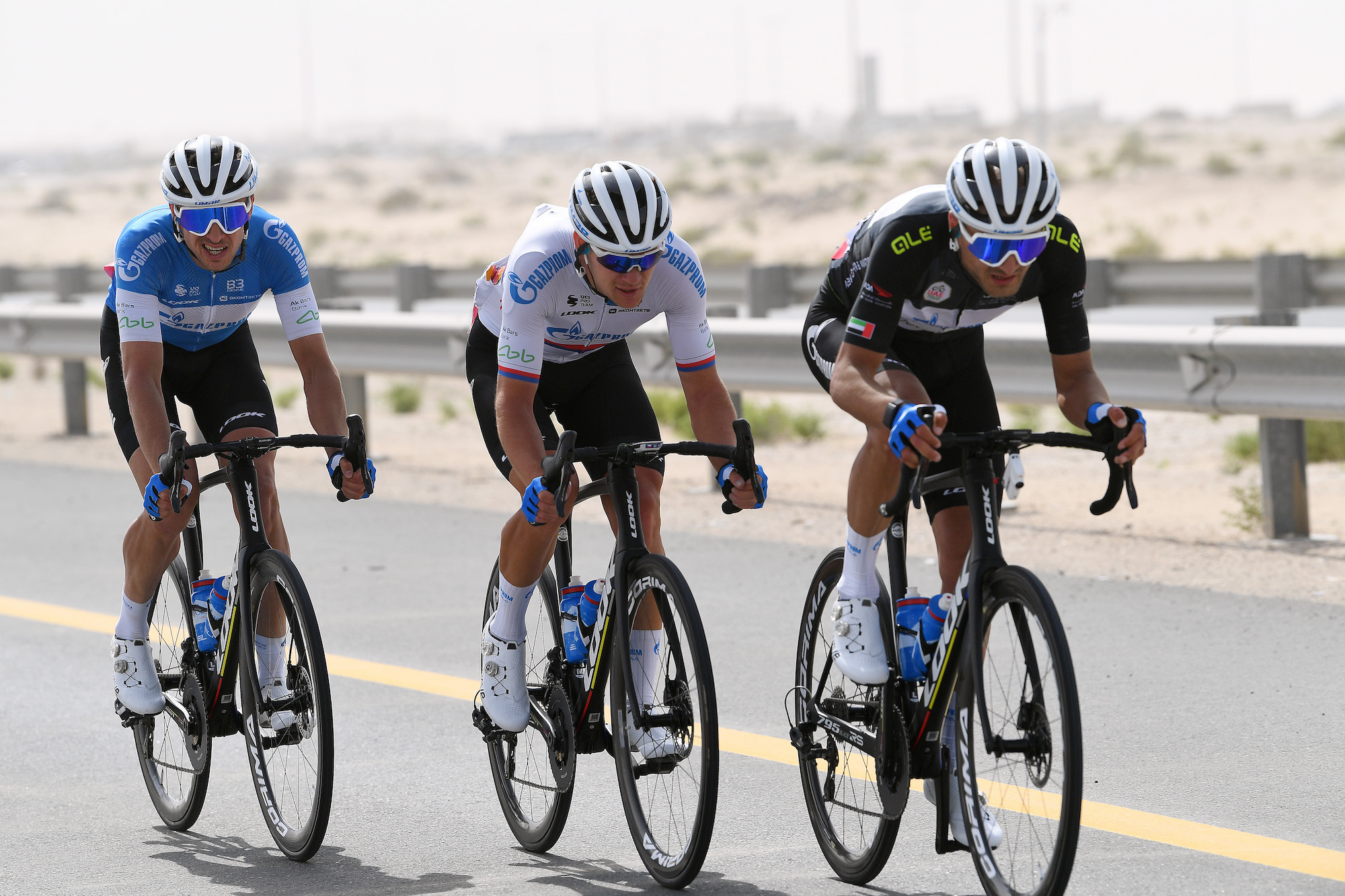

The Russian invasion of Ukraine has led to economic sanctions on the individuals and companies tied to Russian President Vladimir Putin. One such company that might face tightening restrictions on its activities across Europe is Gazprom, the Russian majority state-owned energy company that gives its name to the Gazprom-RusVelo cycling team.
Last Friday, the team's Czech rider Mathias Vacek won stage six of the UAE Tour, and the squad have been highly visible all week, with Dmitry Strakhov leading the intermediate sprints competition at the race. The timing of the Russian team's success while Russian forces are in Ukraine has attracted the fierce glare of the spotlight.
On Tuesday, French sports equipment manufacturing company Look Cycle ended its technical support and partnership with the team, making the decision "in light of the shocking and unforgivable news".
Who are Gazprom-RusVelo?
They are a Russian ProTeam that rides on the UCI's ProTour, and have been around since 2012. They were originally just RusVelo, before Gazprom came on board in 2016. They were ranked 30th in the world on the UCI's rankings last year, and have won two races so far this year, a stage of the Tour of Antalya and a stage of the UAE Tour, through Matteo Malucelli and Vacek respectively.
They have achieved some notable results in their time, including a stage of the Giro d'Italia in 2016 through Alexander Foliforov, who pipped Steven Kruijswijk to the win. They make regular appearances at UCI events, especially those organised by RCS, turning up at races like the UAE Tour, Tirreno-Adriatico and the Giro di Sicilia in recent years.
Current riders include Ilnur Zakarin, who won stages at both the Tour de France and Giro d'Italia while riding for Katusha, another Russian team. Aleksandr Vlasov, who is now winning races for Bora-Hansgrohe, spent 2018 and 2019 with Gazprom.
On Gazprom's website, it says: "The Gazprom-RusVelo team unites young cyclists from across Russia. The team participates in numerous international competitions, including the prestigious Giro d’Italia race. As a reliable partner, Gazprom supports the athletes on their way to success."
Get The Leadout Newsletter
The latest race content, interviews, features, reviews and expert buying guides, direct to your inbox!
While they are a Russian team, over half the riders are not Russian, including Malucelli and Vacek above. Just nine of the 21 on the roster are Russian.
What's Gazprom?
Gazprom is a majority state-owned multinational energy, from St Petersburg, which is the largest publicly-listed natural gas company in the world and the largest company in Russia. Its name comes from the Russian word for 'gas industry', and it was formed out of the Soviet Union's Ministry of Gas Industry when the bloc was dissolved.
It sells much of the gas that supplies Europe, with Germany getting about half of its natural gas from Russia. The company maintains close ties to the Russian state, despite being a publicly-listed company.
The company is headquartered in the city of Saint Petersburg, with total assets of €323 billion as of 2020, with revenues that year of $87.4 billion. It employs nearly half a million people.
In 2018, Gazprom produced 12 per cent of global natural gas output and has proven reserves of 35.1 trillion cubic metres of gas and 1.6 billion tons of gas condensate.
Who runs Gazprom?
Its CEO is Alexey Miller, who has run the company since 2001. He has a close history with Vladimir Putin, and worked with the Russian president in the 1990s. When America imposed sanctions on Miller in 2018, he said: “Finally I’ve been included. It means we are doing everything right.”
The company's chairman is Viktor Zubkov, who was Russia's Prime Minister between 2007 and 2008, and served as First Deputy Prime Minister of Russia when Putin was prime minister between 2008 and 2012.
Who runs Gazprom-RusVelo?
That's trickier to work out. Its general manager is Renat Khamidulin, who has been present at the UAE Tour this week. The team is registered in Switzerland, according to the UCI's website, not in Russia. Gazprom appear to be simply the sponsors, since they came onboard in 2016. It is believed to be connected to the Russian Global Cycling Projects, the Russian Cycling Federation's organisation, which previously supported Katusha.
Cycling blog The Inner Ring believes the team looks to be structured in the usual pro cycling model of owners renting out naming rights and the jersey.
Why is Gazprom in the news and might face sanctions?
As a result of the Russian invasion of Ukraine, all major Russian companies are facing possible sanctions. Gazprom, as the largest, has faced scrutiny. It has other advertising interests in sport, including football's Champions League. German football club Schalke 04, sponsored by the company, have already removed Gazprom from their shirts.
According to The Economist, "the bigger question is whether sanctions will be imposed on Gazprom". It continued: "Before the attack, the betting was that given how dependent on Gazprom Europe remained, the firm would not suffer much."
However, the same article also argues: "The conflict will do grave damage to Gazprom’s reputation nonetheless."
Will the UCI get involved?
It is unlikely. Gazprom-RusVelo has not broken any rules, and it is not even officially a Russia-based team. Twelve of its 21 riders are not even Russian. It would be simply a gesture, although the Ukrainian Football Association has called for Russian teams be excluded from UEFA competitions, so there might be calls to do something similar in cycling.
There are currently no major races scheduled to happen in Russia, so the UCI cannot follow UEFA's lead and withdraw an event from the country, as they have in the case of the Champions League final.
What else could happen?
Gazprom-RusVelo lists 12 partners on its website, but French bike brand Look, who provided the team with equipment, has since decided to stop its technical support and partnership with the team.
If there continues to be pressure on Russia over its invasion of Ukraine, and therefore large Russian companies like Gazprom, more partners might not feel comfortable being linked with the squad and could take the same action as Look Cycle.
Furthermore, the team relies on invites in order to take part in races like the UAE Tour. Race organisers might not want negative PR from a Russian squad taking part in their events. Currently, Gazprom-RusVelo are down to ride Tirreno-Adriatico, Milan-San Remo, and the Volta a Catalunya in the coming weeks.

Thank you for reading 20 articles this month* Join now for unlimited access
Enjoy your first month for just £1 / $1 / €1
*Read 5 free articles per month without a subscription

Join now for unlimited access
Try first month for just £1 / $1 / €1

Adam is Cycling Weekly’s news editor – his greatest love is road racing but as long as he is cycling, he's happy. Before joining CW in 2021 he spent two years writing for Procycling. He's usually out and about on the roads of Bristol and its surrounds.
Before cycling took over his professional life, he covered ecclesiastical matters at the world’s largest Anglican newspaper and politics at Business Insider. Don't ask how that is related to riding bikes.
-
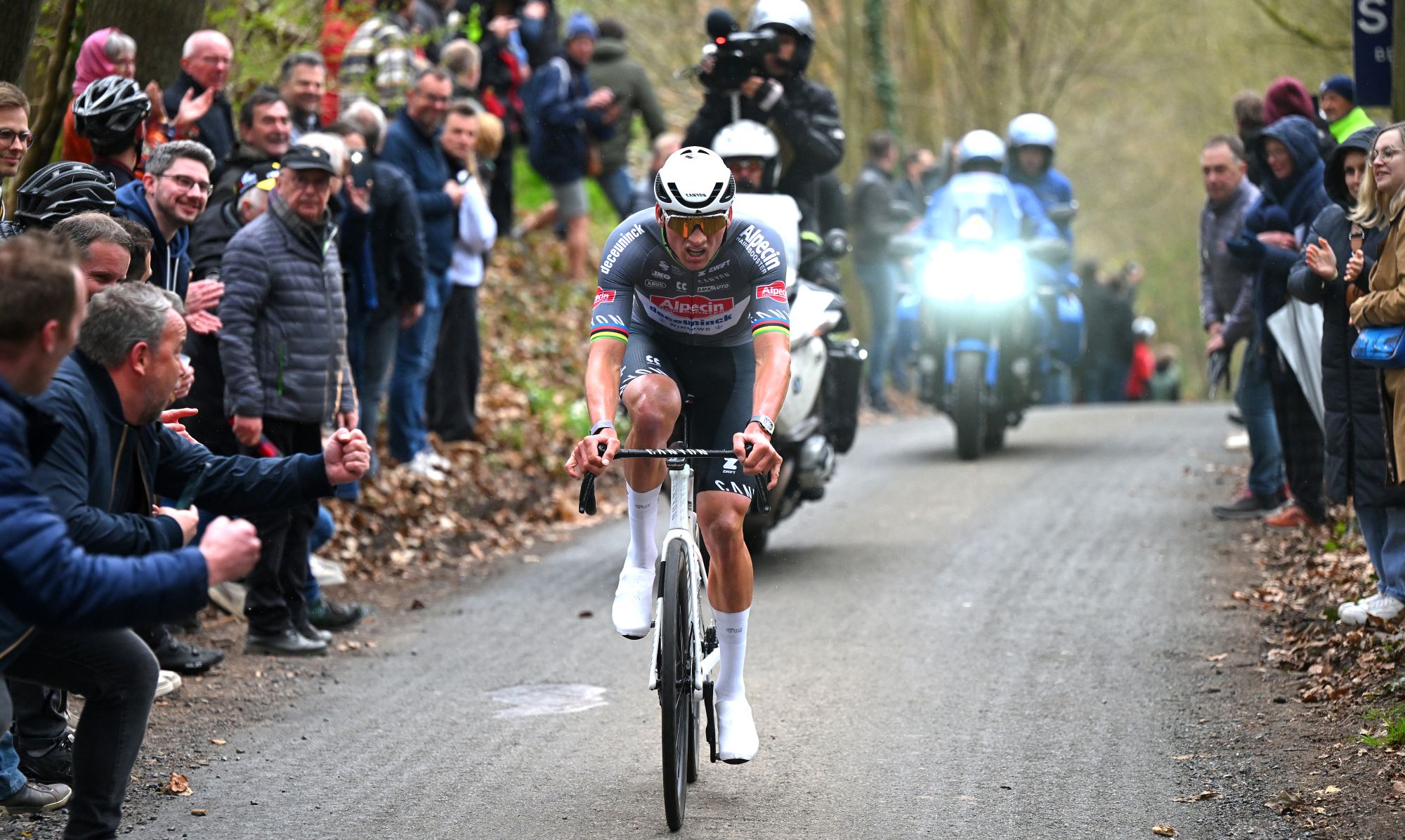 'I start every race to win' - Mathieu van der Poel fired up ahead of Paris-Roubaix showdown with Tadej Pogačar
'I start every race to win' - Mathieu van der Poel fired up ahead of Paris-Roubaix showdown with Tadej PogačarTwo-time winner says he has suffered with illness during spring Classics campaign
By Tom Thewlis Published
-
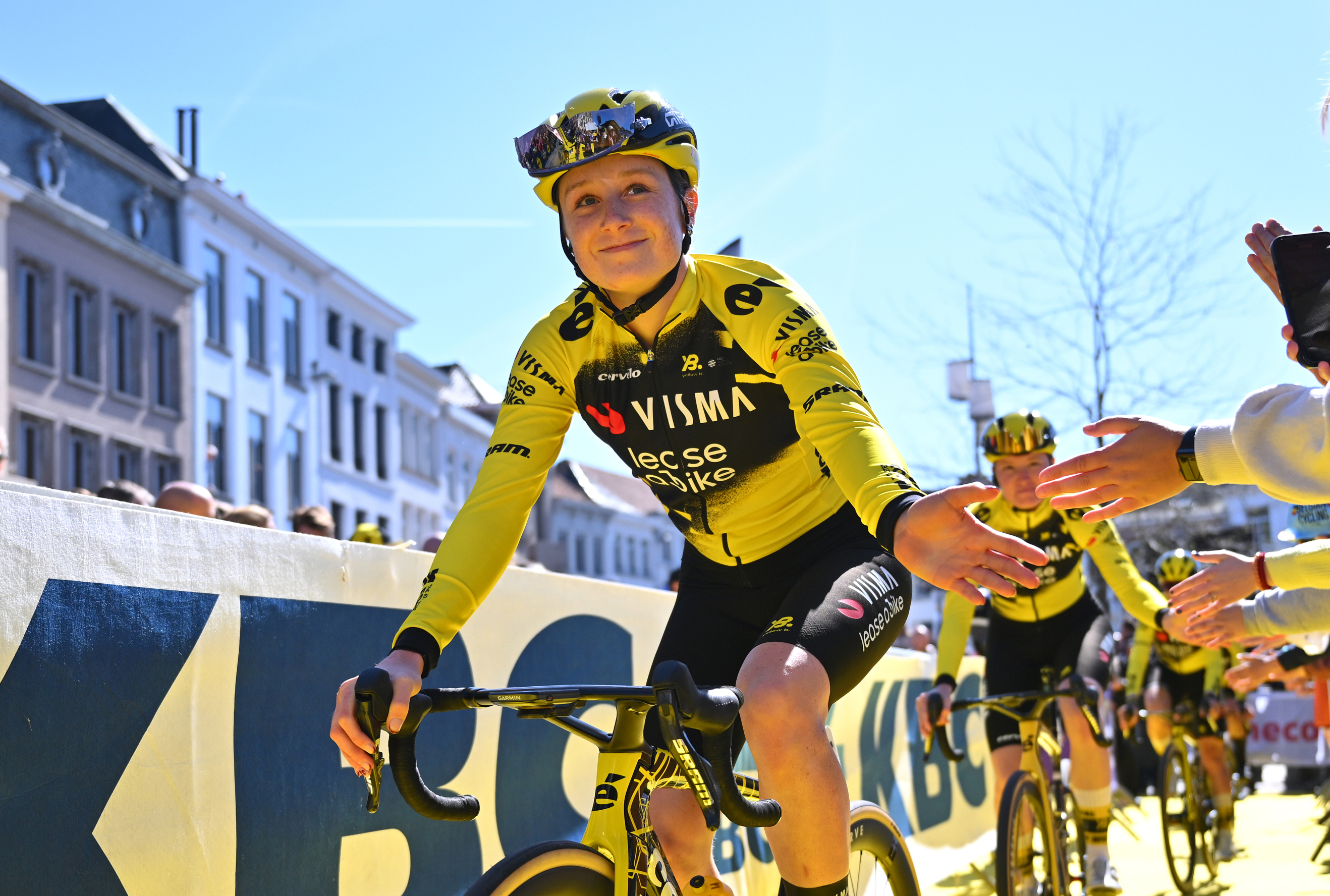 'It's really surreal that now I'm part of it' - 19-year-old Imogen Wolff set to go from spectator to racer at Paris-Roubaix
'It's really surreal that now I'm part of it' - 19-year-old Imogen Wolff set to go from spectator to racer at Paris-RoubaixBrit first came to see the 'Hell of the North' when she was six
By Tom Davidson Published
-
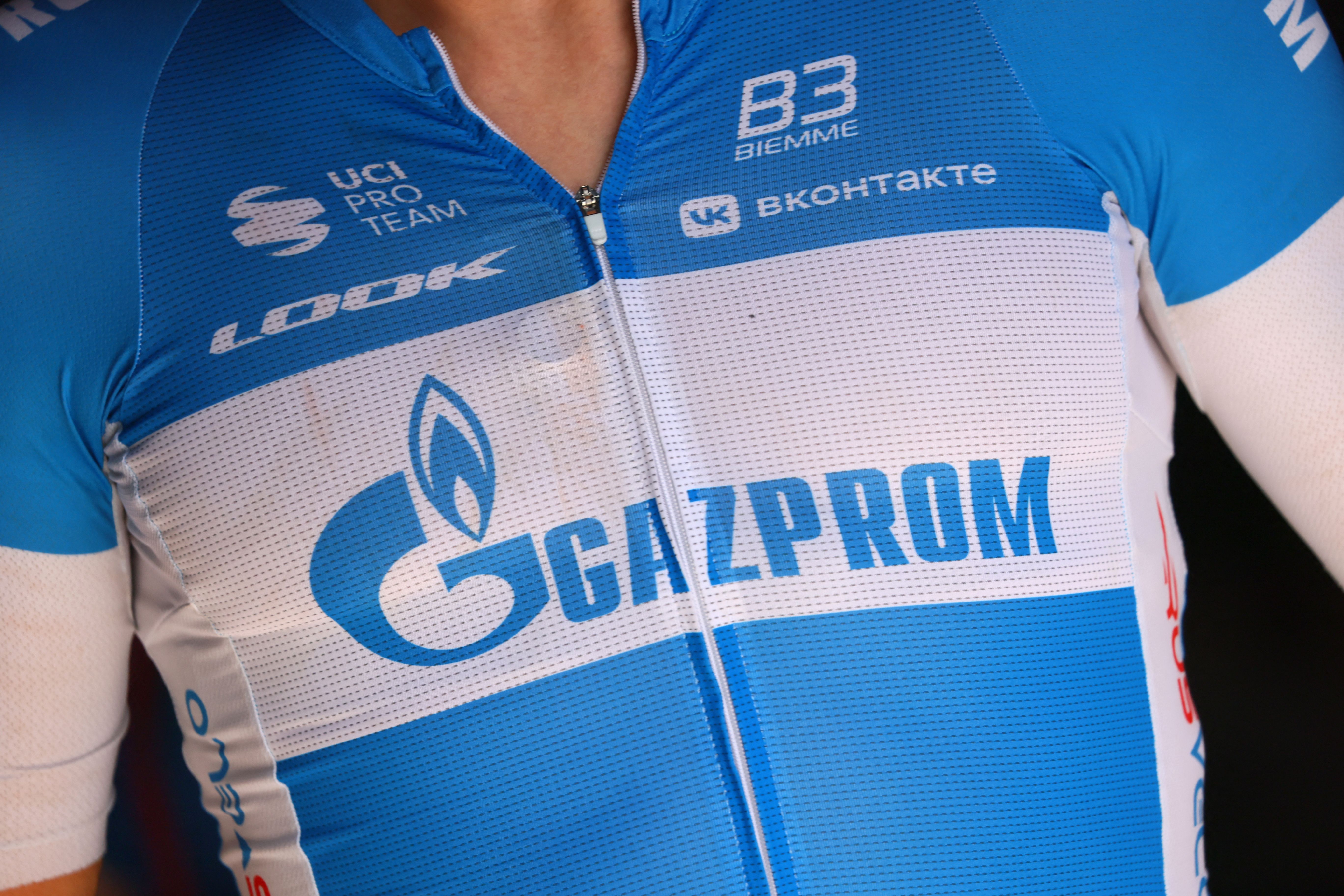 Team formerly known as Gazprom-RusVelo hunting for new title sponsor after Russia sanctions
Team formerly known as Gazprom-RusVelo hunting for new title sponsor after Russia sanctionsTeam currently unable to race due to Russian registration
By Adam Becket Published
-
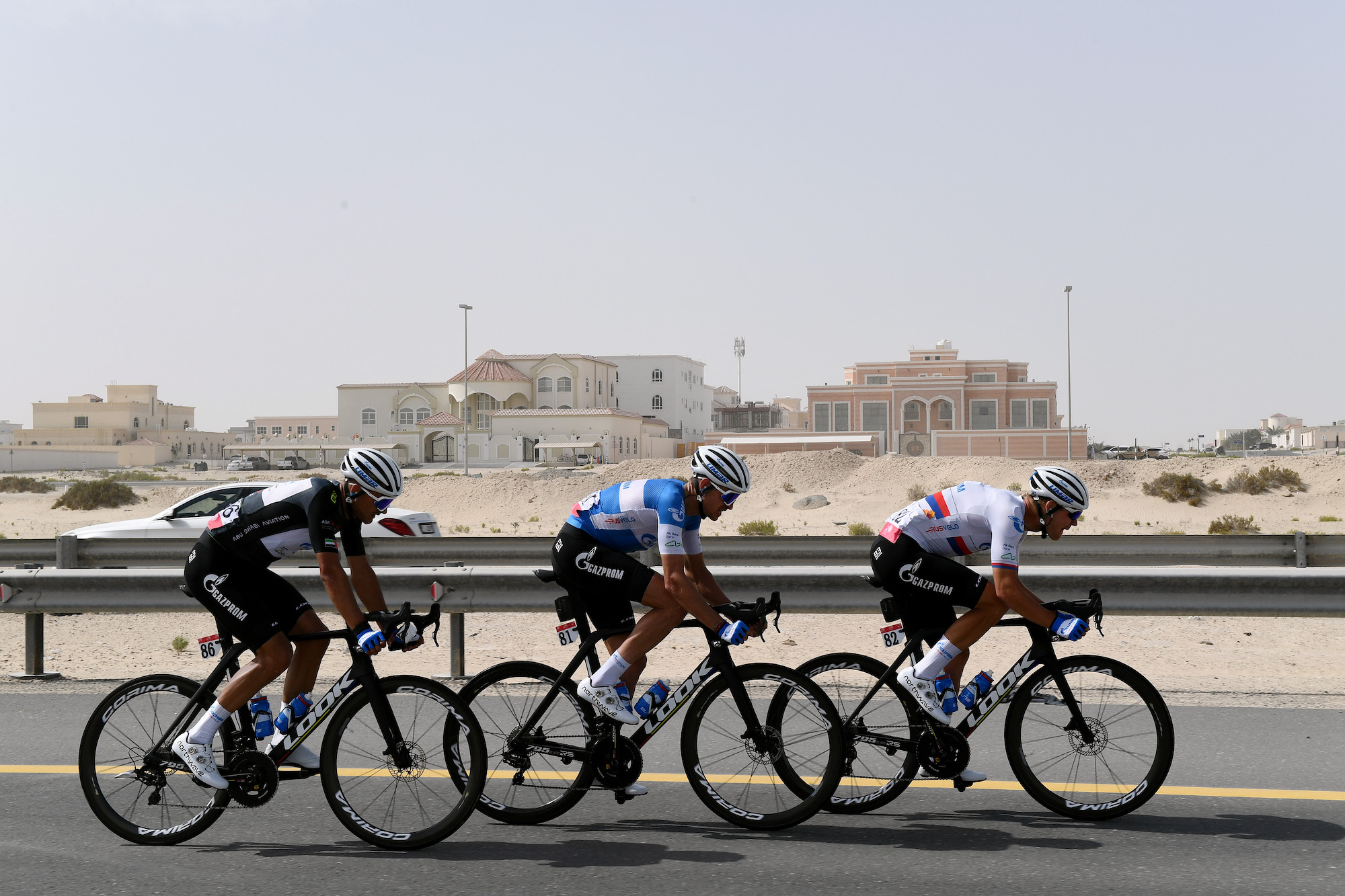 Gazprom-RusVelo lose wheel and bike sponsors after Russian invasion of Ukraine
Gazprom-RusVelo lose wheel and bike sponsors after Russian invasion of UkraineLook and Corima say they will stop "technical support and partnership" after "shocking and unforgivable news"
By Adam Becket Last updated